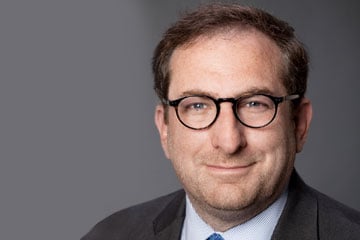Osgoode Hall Law School has announced the establishment of a reconciliation fund to benefit indigenous initiatives at the school.

Osgoode Hall Law School has announced the establishment of a reconciliation fund to benefit indigenous initiatives at the school.
The fund has been created to expand on opportunities offered at the school for educating students on indigenous law and to create spaces for indigenous community life. The creation of the fund stems from the urgency for reconciliation with indigenous peoples, especially with the information brought to light by the release of 2015’s final report by the Truth and Reconciliation Commission of Canada.
“We realized, at the end of the day, why the rhetoric and the commitment in words have to be matched by deeds, and ultimately deeds turn on resources,” says Osgoode law dean, Lorne Sossin. “The fund is about committing resourses but really, to bring to life those commitments that were widely shared at the law school."
The announcement, made on June 21, states the $300,000 fund will be used over the next three years. Sossin says that he hopes the money, comprised of surplus dollars from the law school as a result of a successful professional development program, will grow in future years.
The fund will support a multitude of activities through the law school: Three years of funding for the Anishinaabe Law Camp, which takes place annually in September at Cape Croker, Ont. in collaboration with the Debwewin Summer Internship Program, the Chippewas of Nawash and the Ontario Ministry of the Attorney General; inaugurate the Office of Indigenous and Reconciliation Initiatives at Osgoode; strengthening ties with the indigenous community by bringing in an elders in residence program and other indigenous experts/guests to speak at events and courses, including the enhancement of indigenous law and issues within the curriculum; increase funding sources for indigenous law students; and fund programming to take place in a cabin behind the law school, Skennen’kó:wa Gamig (formerly known as Hart House), to be a physical centre for indigenous community life for law students and other students across York University.
“In particular, I think law schools bear special responsibility, given the role of the legal system has played in the marginalization of indigenous communities in a colonial past and the role law can play now in a restorative sense,” says Sossin.
Sossin says that unveiling this fund is only the beginning of the solution in indigenous reconciliation.
“I always am reluctant to see any of these initiatives as destinations. I think they’re really important chapters, important steps to the right path, but there’s a huge amount of work that lies ahead and a huge amount of learning we need as a law school to be open to,” says Sossin. “I just wouldn’t want to suggest that we think we found the answers or we think we’re done. It’s very much the opposite that the reconciliation fund is meant to signify.”
The fund has been created to expand on opportunities offered at the school for educating students on indigenous law and to create spaces for indigenous community life. The creation of the fund stems from the urgency for reconciliation with indigenous peoples, especially with the information brought to light by the release of 2015’s final report by the Truth and Reconciliation Commission of Canada.
“We realized, at the end of the day, why the rhetoric and the commitment in words have to be matched by deeds, and ultimately deeds turn on resources,” says Osgoode law dean, Lorne Sossin. “The fund is about committing resourses but really, to bring to life those commitments that were widely shared at the law school."
The announcement, made on June 21, states the $300,000 fund will be used over the next three years. Sossin says that he hopes the money, comprised of surplus dollars from the law school as a result of a successful professional development program, will grow in future years.
The fund will support a multitude of activities through the law school: Three years of funding for the Anishinaabe Law Camp, which takes place annually in September at Cape Croker, Ont. in collaboration with the Debwewin Summer Internship Program, the Chippewas of Nawash and the Ontario Ministry of the Attorney General; inaugurate the Office of Indigenous and Reconciliation Initiatives at Osgoode; strengthening ties with the indigenous community by bringing in an elders in residence program and other indigenous experts/guests to speak at events and courses, including the enhancement of indigenous law and issues within the curriculum; increase funding sources for indigenous law students; and fund programming to take place in a cabin behind the law school, Skennen’kó:wa Gamig (formerly known as Hart House), to be a physical centre for indigenous community life for law students and other students across York University.
“In particular, I think law schools bear special responsibility, given the role of the legal system has played in the marginalization of indigenous communities in a colonial past and the role law can play now in a restorative sense,” says Sossin.
Sossin says that unveiling this fund is only the beginning of the solution in indigenous reconciliation.
“I always am reluctant to see any of these initiatives as destinations. I think they’re really important chapters, important steps to the right path, but there’s a huge amount of work that lies ahead and a huge amount of learning we need as a law school to be open to,” says Sossin. “I just wouldn’t want to suggest that we think we found the answers or we think we’re done. It’s very much the opposite that the reconciliation fund is meant to signify.”







